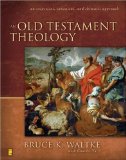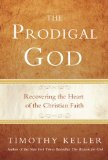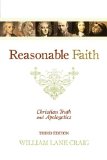I recently made a promise to a class at one of our church’s training schools to spend a little bit of time talking about the book of Job, <sarcasm> because if any book of the Bible can be discussed in a short amount of time, its Job </sarcasm>. Of course, we ran out of time anyway, so I was unable to offer some thoughts on this ever-perplexing book. In the interest of mitigating my risk of being known as a big liar, some thoughts (i.e., my notes for the class) on the book of Job follow.
- Job is largely a book of what Douglas Stuart calls, “speculative dialogical wisdom.” This is evident in the long exchanges between Job and his friends, Eliphaz, Bildad, Zophar and Elihu. It is largely poetry, save the prologue, epilogue, and a brief sections that introduce the next speaker.
- High-level structure of the book:
- Prologue (Chs.1-2)
- Job’s opening lament (Ch. 3)
- Dialogue and dispute (3 cycles: Chs. 4-14, 15-21, 22-27)
- Wisdom interlude (Ch. 28; unidentified speaker, perhaps the author)
- Monologues (Job: 29-31; Eluhu: 32-37; God: 38-42)
- Job’s contrition (40:3-5; 42:1-6)
- Epilogue (42:7-17)
- How has Job offended God? Why does God speak to Him so harshly?
- Job is calling God to account, most explicitly in 31:35: “Oh, that I had someone to hear me! / I sign now my defense—let the Almighty answer me; / let my accuser put his indictment in writing” (emphasis mine).
- This might remind us of Romans 9, esp. v.20: “But who are you, a human being, to talk back to God? Shall what is formed say to the one who formed it, ‘Why did you make me like this?’” (c.f., Is. 29:16; 45:9). All of these texts speak negatively of the one who questions God in this way.
- Bottom line: It is completely backwards for us to question God – as if we’re His judge.
- Note a distinction: questioning God can be demanding an answer from Him (implying that you think He’s wrong), or questioning God can be expressing a lack of understanding, and asking for clarity or peace. I would content that only the former (Job’s response) is sinful.
- How do the others (Eliphaz, Bildad, Zophar) sin? (Aside: It’s interesting that Elihu isn’t mentioned in the epilogue; some contend that because of this, his speech was a later addition).
- Some of what they say seems right on, no?
- Ultimately, the book teaches that nobody knows the mind of God. All these characters offer answers as to why Job suffers, but they’re all wrong, supposing to know the answer Job seeks, but only God does. P.S.: He doesn’t tell them, either.
- N.b., An important life lesson here: Don’t dare try to explain God’s actions unless its explained clearly in Scripture: Talking about God’s plans in redeeming humankind is one thing, saying that hurricane Katrina was God’s judgment on the sinfulness of New Orleans is egregious folly!
- A funny paraphrase of something Stuart said, “We don’t even know what chipmunks are thinking, why should we think we know what God is thinking?”
- More thoughts on suffering (tons more could be said):
- Remember two “levels” to suffering: The pastoral/emotional level, and the philosophical/intellectual level.
- This should affect how we respond to people engaging with the problem of suffering.
- If they just lost a loved one, we oughtn’t make the mistake of Job’s friends and theologize about it; this is rarely helpful at all.
- By trusting God – not cursing or questioning Him – through suffering, we are glorifying Him.
- Job makes as clear as any other book in Scripture that we won’t always know why or whence suffering; this doesn’t need to affect our response to suffering, which is the same whether we know why or not: Run to God.
- We must never (ever!) forget the Christ when we suffer:
- We cannot look at the cross and say that God doesn’t care, or love us with unfathomable love.
- We cannot look at the cross and say that God is not just, and one who deals with evil, and will ultimately eradicate the suffering of those who love Him.
- We must remember that God became man and suffered for us, so we wouldn’t have to.
- I’ve always found comfort in an adaptation of an illustration by Alvin Plantinga:
- The classic viewpoint of the problem:
- A good God would not allow pointless suffering.*
- There is pointless suffering.
- There is no good God.
- The viewpoint from the cross:
- A good God would not allow pointless suffering.*
- There is a good God.
- There is no pointless suffering.
- (*The statement “A good God would not allow suffering,” is itself a highly questionable statement; one many accept without question, yet it is highly suspect. E.g., as a good father, there are times when I allow my son to suffer. There are actually some very compelling arguments for a good God precisely because evil and suffering exist; but that’s out of scope here).
- The classic viewpoint of the problem:
- Remember two “levels” to suffering: The pastoral/emotional level, and the philosophical/intellectual level.
I am officially no longer a liar :) Of course, so much more could be (has been!) written about Job, evil and suffering. I make no claim that this is a well-nuanced or complete treatment here. Hopefully, however, it is helpful as food for thought, if nothing else.











